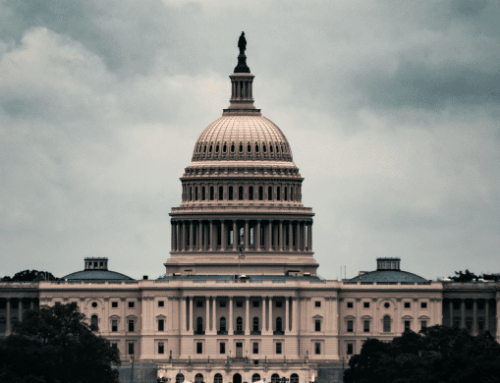Why can’t the Pentagon pass an audit? At a hearing yesterday of the House Oversight Subcommittee on Government Operations and the Federal Workforce, lawmakers sought answers. Last November, the Pentagon failed its sixth consecutive audit since 2018, before which it had never even attempted once. It’s the only government agency that has never passed an audit.
In 2020, the Pentagon announced its goal to pass an audit by 2027, but when pressed following last year’s failure, a Pentagon spokesperson rejected questions about meeting that deadline as “hypothetical” and said she “can’t predict the future.” Yesterday, we got a clearer answer from Tom Steffens, Special Assistant to the Pentagon Comptroller and one of the witnesses at the hearing:
The FY 2024 National Defense Authorization Act mandated an unmodified audit opinion on the DOD-wide financial statements by December 31, 2028. This is also now the department’s audit goal.
So, on the one hand, at least the Pentagon is now holding itself to a specific timeline again, albeit after Congress forced it to. On the other hand, the timeline has slipped by a year and risks slipping again.
In one of many pointed questions posed by lawmakers, Rep. Eric Burlison (R-MO) asked if the witnesses believed the Pentagon could achieve a clean audit by the end of 2028. Mr. Steffens responded, “It will definitely be a challenge. But I believe if we have a few, a couple of key elements in place, I think we can do it.” He highlighted commitment from leadership as one of those key elements but said it would ultimately require “all hands on deck.”
Brett Mansfield, Deputy Inspector General for Audit at the Pentagon Office of the Inspector General, was more circumspect, saying, “I’m very hesitant to make any predictions before we’ve actually done the work,” and that the Pentagon “does have a history of sliding expectations and goals…”
In response to Mr. Steffens highlighting improved commitment from leadership, which he attributed to Congress mandating the December 2028 goal, Rep. Burlison retorted, “it’s been six years, that shows there hasn’t been really any commitment.” Echoing that sentiment, Rep. Gary Palmer (R-AL) concluded his remarks by saying, “I’m not sure they are taking us seriously,” referring to Pentagon leadership.
Rep. Summer Lee (D-PA) took her criticism even further, highlighting that the Pentagon spent more than $4 billion in an effort to achieve a clean audit between FY 2018 and FY 2022, and framing that as “so much money for zero results.” She argued that “just about anyone else would get fired for that type of failure, yet the DOD faces no consequences.”
Like lawmakers on both sides of the aisle, Taxpayers for Common Sense remains concerned about the lack of accountability for the Pentagon’s ongoing failure to pass an audit. Thankfully, the bipartisan Audit the Pentagon Act offers a solution. This legislation, H.R. 2961 in the House and S. 2054 in the Senate, would require each Pentagon component that fails an audit to forfeit between 0.5 and 1 percent of its budget to the Treasury Department for deficit reduction.
Given the Pentagon’s ongoing failure to pass an audit and its habit of moving the goalposts on the timeline, implementing some actual accountability is just common sense. Lawmakers on both sides of the aisle committed to national and fiscal security should cosponsor this legislation and work to get it across the finish line as soon as possible.










